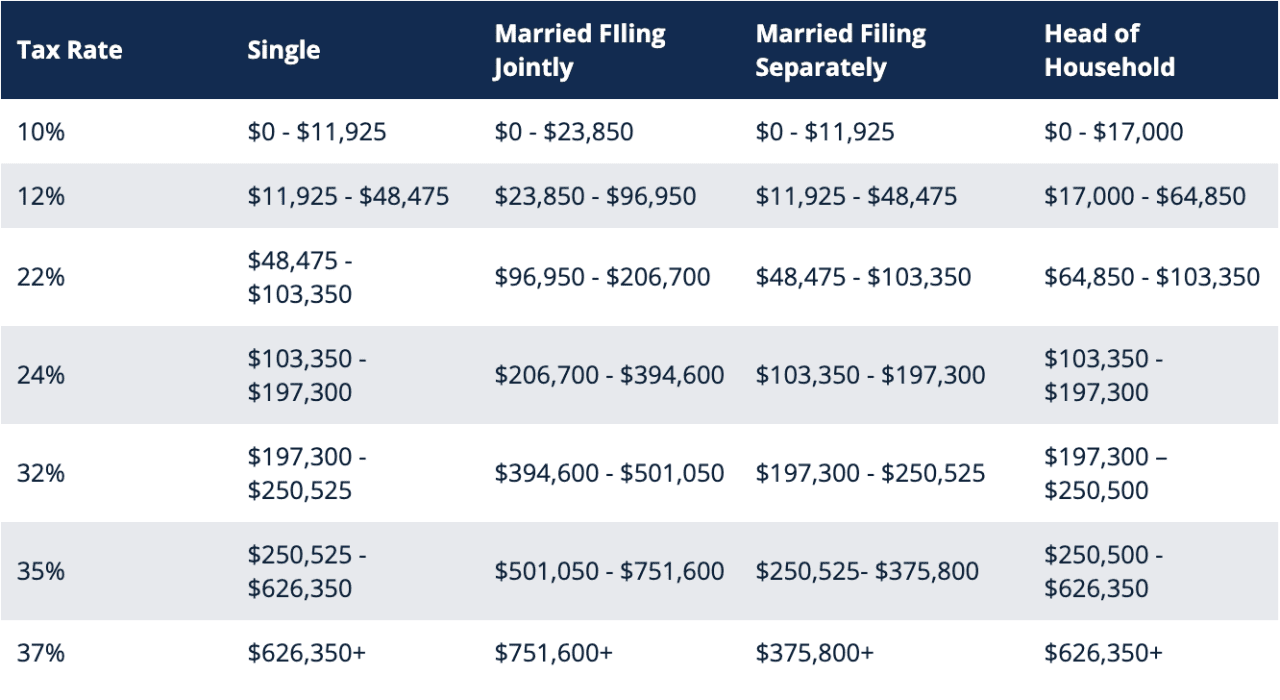
According to the IRS, the “tax gap” in the United States is $696 billion. It’s the difference between Americans’ actual tax liability and the income tax they end up paying.
If you are a new real estate investor, you may be asking yourself: The answer is simple. Yes, the IRS will know if you have rental income. And if you try to avoid reporting it, you could face financial and criminal penalties.
According to the IRSIn the USA, the “tax gap” is 696 billion dollars. It’s the difference between Americans’ actual tax liability and the income tax they end up paying.
Because of this significant loss of tax revenue, the US government is taking extra steps to ensure that everyone pays their fair share.
So how does the IRS know you have rental income? TurboTenant: breaks it down to help you understand how to properly report your rental income on your tax return.
What does the IRS consider rental income?
The IRS issued a useful fact sheet clarify for real estate investors what is considered rental income. Here’s what they include:
Usual rentsThese are the regular monthly rents you receive from your tenants. They also include late fees and any prorated rent if the tenant moves out mid-month.
Lease AdvancesWhen a new tenant moves in, you can collect the first and last month’s rent in advance. Doing so is considered collection of advance rent and the entire amount is taxable in the year of receipt.
Charges for cancellation of leaseIf you receive a payment because a tenant has canceled a lease, you must report that amount to the IRS as rental income.
Expenses paid by the lesseeNon-cash compensation, such as a tenant providing services, such as lawn mowing or painting, in exchange for a reduction or cancellation of rent, is considered rental income. Even if no cash changes hands, you must report the actual value of the services as income.
Tenants usually pay a security deposit when they move into a property, and landlords usually don’t count it as income because they plan to return it at the end of the lease. However, if they use any part of the deposit to cover expenses or unpaid rent, that money immediately becomes rental income.
How does the IRS find out about my rental income?
If you don’t report rental income to the IRS, how can they find out? This can happen through a random tax audit, a tip from someone who knows you’re hiding income, or through IRS tools designed to detect tax evasion.
IRS automated underreporting program
The IRS created an Automated Underreporter (AUR) to detect irregularities in tax returns. It compares taxpayers’ reports with those submitted by banks and other financial institutions. Even if you leave income off your return, the IRS can use third-party sources to identify it.
Regular tax audit
The Tax Policy Center reportsThe IRS audits about 0.3% of all annual tax returns. In the big picture, this represents a small percentage of Americans. However, routine (and, for the most part, random) tax audits are another way the IRS can uncover unreported rental income.
It’s also worth noting that the IRS focuses more on higher income earners, meaning the more you earn, the higher your chances of being audited.
According to TurboTaxHere are some red flags to avoid if you want to avoid a tax audit:
- Failure to report income
- Taking the home office deduction
- Business Loss Report
- Report unusual large business deductions
- Making too much or too little money
- Making mistakes on your tax return
IRS Whistleblower Office
The IRS Whistleblower Office pays rewards of 15% to 30% to people who report possible tax evasion, which means that if you lie to the IRS and trust someone, they can profit from turning you in.
For the IRS to consider a whistleblower claim, the amount in dispute must exceed $2 million and the taxpayer must report at least $200,000 in income.
Documents and Public Records
Owning an investment property involves a lot of public records and documents, and the IRS has access to it all. These documents can reveal unreported income and trigger an audit.
- Form 1098Each year, you will receive a Form 1098 showing how much mortgage interest you paid on the property. Failure to report this percentage on your tax return could raise a red flag and trigger an audit.
- LicensingAs with sales tax, some cities and states require property investors to pay rental income tax and, in some cases, to obtain a license first. If the IRS sees that you have this license, they will expect you to report the rental income each year.
- Property tax recordsThe IRS can cross-check property tax records to see who owns the rental property and whether they are paying taxes on that income.
How is rental income taxed?
The IRS taxes rental income the same way it taxes other earned income. Your tax rate depends on which tax bracket you fall into. Below is a chart to help you determine your bracket.

As an example, let’s pretend you have $4,000 in net rental income. This amount is what you earn on the investment property after deducting operating expenses, mortgage interest and depreciation.
If your total income puts you in the 24% tax bracket, you’ll pay $960 in income tax.
How do I report rental income to the IRS?
Reporting rental income to the IRS isn’t difficult, but it does require accurate accounting and proper forms. Here’s a basic guide on how to report rental income to the IRS:
1. Collect documents and update your accounting
Before you file your tax return, make sure all your entries are accurate. This includes calculating the previous year’s rental income and expenses. You also need to understand the property’s cost basis because that’s what you’ll use to calculate the annual depreciation.
Using TurboTenant’s integrated accounting tool can help you keep your accounting records accurate and reduce stress during tax season.
2. Complete Schedule E
As a real estate investor, you must complete a Schedule E a form that includes details about the property such as address, property type and rental days per year.
You’ll also use Schedule E to report the rent received and all related expenses. With that information, you can calculate the estate’s net gain or loss, which you’ll then report on your Form 1040.
Remember that most investors report income and expenses on a “cash basis,” meaning they report income in the year it’s earned and expenses when they pay them.
3. Complete Form 4562
When you claim a rental property depreciation deduction, you must also file Form 4562which will allow you to depreciate a portion of the property’s value over 27.5 years.
4. All file formats
After completing the paperwork, you’ll file Form 1040, Schedule E, and Form 4562 with the IRS.
If you live in a state that charges income tax, you must also file a state return. Requirements vary by state.
What happens if I don’t report rental income to the IRS?
The last thing you want to do is fail to report rental income to the IRS, even if you did so unintentionally. If the IRS discovers unreported income, it can initiate a full audit of your tax return, and you could owe back taxes, fines, and in some cases jail time.
Here’s a closer look at the penalties you could face for not reporting rental income:
- Civil Fraud PenaltiesIf you knowingly owe taxes but don’t report them, the IRS considers it fraud. You may be fined up to 75% of the amount owed.
- Accuracy penaltiesIf an audit finds errors on your return, the IRS can impose penalties of anywhere from 20% to 40%, depending on how serious the problem is.
- Criminal chargesLess than 2% of audits result in criminal charges. But if you commit tax evasion, file a false return, fail to file, or willfully avoid paying taxes assessed, you can face criminal prosecution and jail time.
Bottom line
If you have rental income, the best thing you can do is make sure you report it accurately on your tax return. Consider using a software solution to tie it all together and streamline your revenue.
Frequently asked questions
Does the IRS audit landlords?
The IRS may audit landlords, but the odds are low. However, certain factors can increase the chances of being audited, such as reporting irregular income, very high or very low income, or claiming large business expenses.
Is the IRS monitoring your bank account?
The IRS does not have direct access to your bank account, but it may request access if it decides to move forward with an audit of your business.
What is the IRS 6 year rule?
If you make a material error in reporting income to the IRS, they can start an audit up to six years after the tax year. The IRS defines a substantial error as underreporting at least 25% of your gross income.
This story was produced TurboTenant: and revised and distributed Stacker.
RELATED CONTENT: Gen Z, finding purpose in a “boring” career, is setting goals in accounting





